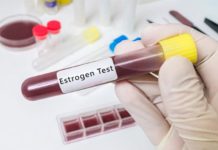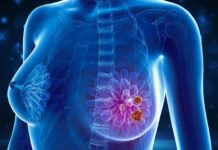
New gene variants have been discovered by scientists that may possibly increase the chances of breast cancer development. International researchers said that the 65 newly-discovered gene variants are likely to increase the chance of having breast cancer. Also, 10 more gene variants, responsible for increasing the risk of estrogen-receptor negative breast cancers, have been discovered that are difficult to treat due to their unresponsiveness toward hormone therapies like the drug, tamoxifen.
Defective Genes:
A major reason behind the development of breast cancers are interaction between environmental factors and genetic variants. A less-frequent mutation in some genes, such as BRCA2 and BRCA1, increases risk of breast cancer, while gene variants in different regions pose a smaller risk for the disease.
Considering genetic variation at individual level, one in nearly 100 women holds some gene variants, whereas many other variants are found in almost 5-0% of women.
International Research:
Published in Nature and Nature Genetics journals, the research significantly contributes to the understanding of inheritance of breast-cancer causing genes. The research was conducted by OncoArray Consortium, comprising 550 researchers from around 300 different institutions from six continents.
The researchers analyzed the genetic data from 275,000 women with 146,000 being diagnosed with breast cancer.
Importance of the Research:
Baroness Delyth Morgan, chief executive of the charitable organization, Breast Cancer Now, said that: “This is another exciting step forward in our understanding of the genetic causes of breast cancer.”
“These gene changes now have the potential to be incorporated into existing models to more accurately predict an individual’s risk, and to improve both prevention and early detection of the disease.”
“Crucially, the discovery of 10 new genetic variants that predispose women to ER-negative breast cancer could be particularly important. This form of the disease cannot be treated with hormone therapies and that these findings could lead to better prevention, earlier detection and possibly even more effective treatments for these patients is very promising.”
“Amid increasing incidence, we need to do much more to prevent breast cancers. We now eagerly await further studies to unpick why these variants increase a person’s risk and to understand whether they could be added to existing risk models to improve the way we prevent, predict and detect the disease in the clinic.”










